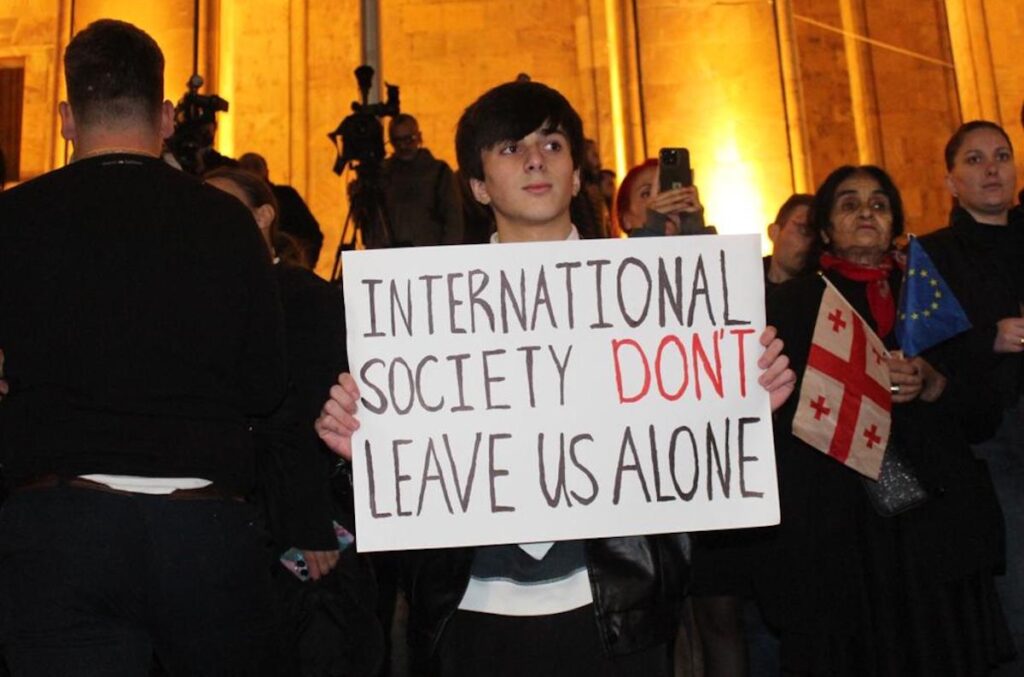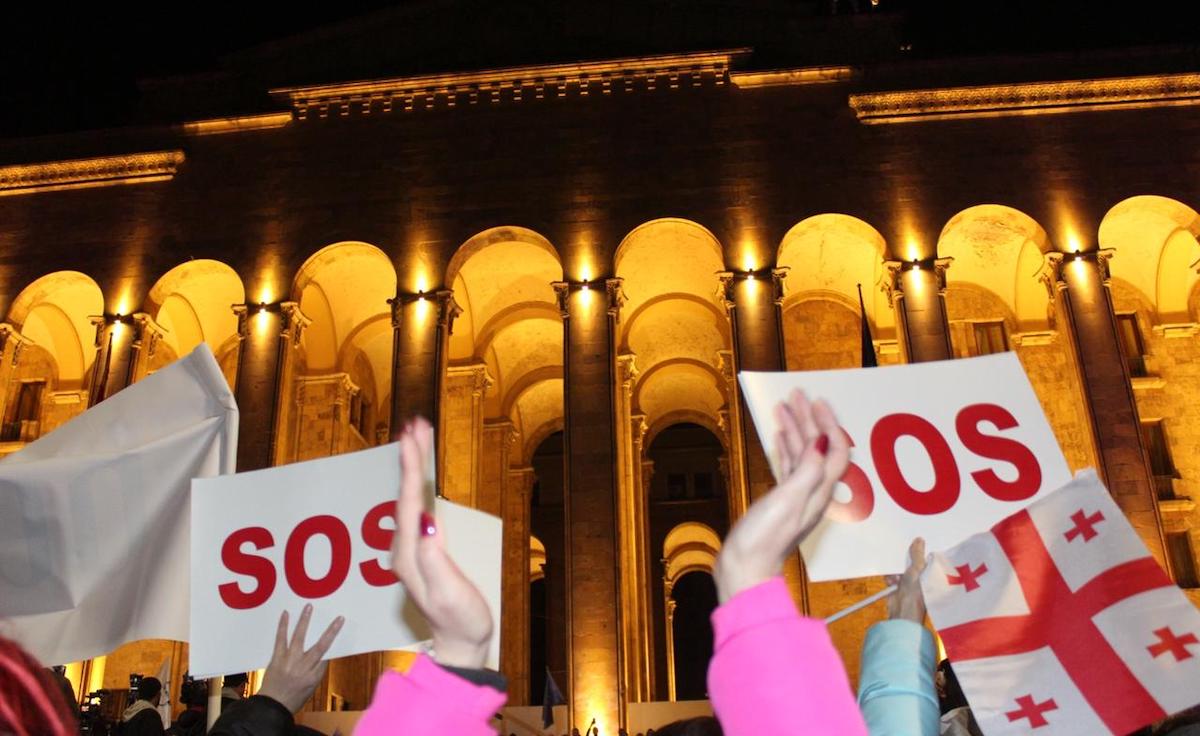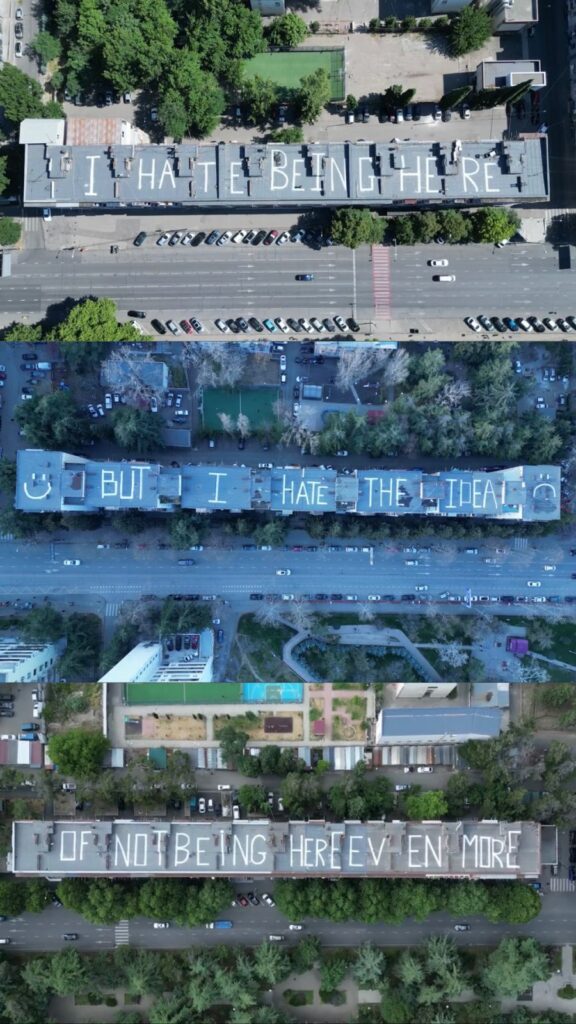Even as recent mass protests against the government's perceived drift towards Russia raised hopes for change, many Georgians remained deeply sceptical about the 26 October elections. With trust in the electoral process already low, concerns about the government's increasingly authoritarian tendencies fuelled doubts about whether the election would be free and fair.
The mood on election day was tense. Reports of irregularities emerged almost immediately, followed by two historically reliable exit polls indicating a possible loss for the ruling Georgian Dream party. Some Georgians began to celebrate prematurely, but this brief optimism was dashed hours later. Preliminary results showed Georgian Dream with a strong lead, dampening hopes for change. Social media was abuzz with frustration and grief.
The incumbent government, led by local oligarch Bidzina Ivanishvili, claimed victory with nearly 54% of the vote, prompting swift accusations of electoral fraud. Opposition leaders and the pro-European president, Salome Zurabishvili, have denounced the election as a "Russian-style" sham and called for it to be annulled. All four opposition parties that passed the electoral threshold have pledged to boycott parliament. While an initial wave of nihilism swept the nation, it was quickly followed by defiance, as tens of thousands gathered outside parliament to denounce what they see as a stolen election.
Preliminary reports from international observers echo some of the opposition's concerns. The Organisation for Security and Cooperation in Europe (OSCE) described the election as emblematic of "democratic regression". Iulian Bulai, head of the delegation from the Parliamentary Assembly of the Council of Europe (PACE), found evidence of vote-buying, intimidation and pressure, particularly in rural areas.
Local activists and civil society groups are gathering evidence to support claims of fraud, but global crises - from the Middle East to Ukraine - are sure to complicate the task of applying pressure from the West.
So far, the EU and the US have called for a thorough investigation, while Ivanishvili's government has been praised by Russian propagandists and Hungarian Prime Minister Viktor Orbán
The Georgian Dream party has been in power for 12 years, almost half my life. The party first entered the political scene on a pro-European platform. The front slowly began to deteriorate, revealing a long-hidden agenda to delay Georgia's EU accession in order to appease its northern neighbour. Currently, Georgia's EU accession process has been put on hold.

To explain the tensions with the West, the government has developed a conspiracy theory that frames these rising tensions as a conflict against a so-called 'Global War Party', which it claims is made up of Western actors colluding with local opposition to drag Georgia into conflict with Russia. Georgian Dream officials claim that these same forces instigated the 2008 war, a narrative that resonates deeply in rural areas where fears of Russian intervention loom large.
Despite the government's propaganda, the electorate, which consistently shows around 80% support for , reacted with alarm, leading to some of the largest protests in Georgia's history in the capital, Tbilisi.
GenZ’s exit plans
For many, the recent elections represented the last democratic opportunity to challenge Ivanishvili's political trajectory. Among my Generation Z peers, hope was high during the protests, but conversations about 'exit plans' in case Georgian Dream secured a fourth term were common in bars and around dinner tables. Amid political instability and economic hardship, record numbers of Georgians are leaving the country. In 2023 alone, 245,064 citizens emigrated, a staggering number for a nation of just 3.6 million.
A conversation I had with a Russian journalist a year ago still echoes in my mind. He noted that many Georgians who criticise Russians for leaving their country are now considering the same choice: "You are in Russia in 2012, Masho," he told me. "While your government is turning to Russian ways, people are already looking for alternatives outside the country."
There were times this year when I thought his statement might be true. But a year on, having seen hundreds of thousands of Georgians protest despite brutal police crackdowns, arrests and beatings of activists, I see a clear commitment to resist authoritarianism and Russian influence. The resilience shown by civil society in the days after the election results was a reminder that most of us are not ready to leave.
After witnessing hundreds of thousands of Georgians protesting despite brutal police crackdowns, arrests and beatings of activists, I see a clear commitment to opposing authoritarianism and Russian influence
Initial waves of despair quickly gave way to renewed calls for resistance. The crowds gathering in Tbilisi signal a clear determination to resist Russian influence and protect democratic institutions. Whether this pressure will be enough to challenge the election results remains uncertain, but the message from civil society is unmistakable: the fight is not over.
In the past few days, a picture of a large graffiti on the roof of residential buildings in Tbilisi has flooded the social media. It reads: “I hate being here, but I hate the idea of not being here even more”. While some may choose to leave, many will likely return, and those who remain are poised to persist in the fight for democratic processes and institutions.
For those who remain, the struggle won't be easy. The government's fear-based rhetoric, its blatant rewriting of history and the opposition's strategy of largely ignoring the government's conspiracy theories have left deep divisions that must be addressed head-on.
The people's commitment to democratic values is clear, but unless international allies and domestic leaders step up to support these aspirations, the country risks further entrenchment under an increasingly authoritarian government.
🤝 This article is published within the Come Together collaborative project.
Do you like our work?
Help multilingual European journalism to thrive, without ads or paywalls. Your one-off or regular support will keep our newsroom independent. Thank you!

















